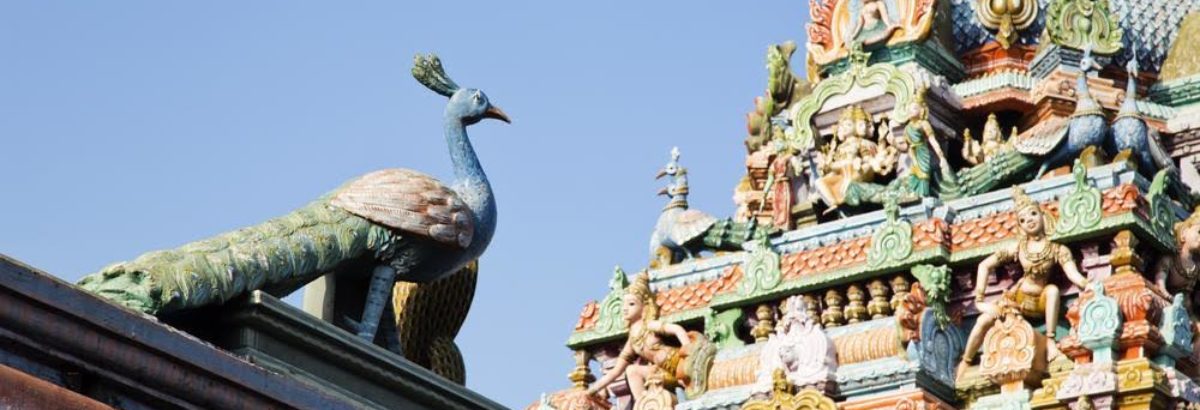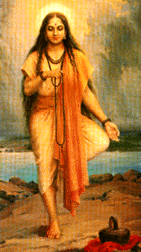Why Worship is compulsory?
Important and inspiring incident from Swami Vivekananda’s life:
Once Swami Vivekananda visited Rajasthan and was the guest of Kings of Jaipur and Alwar. While at Alwar, Swamiji had an interesting conversation with Raja Mangal Singh who had been influenced by western notions and concepts particularly about worship and religion.
In his Court, the King asked Swamiji; Swamiji Maharaj, I have no faith in idol worship. What is going to be my fate?
He smiled as he spoke. Swamiji seemed slightly annoyed and exclaimed, “surely you are joking”
“No Swamiji not at all. You see, I really cannot worship wood, earth, stone or metal, like other people. Does this mean that I shall fare worse in the life hereafter?”
Swamiji answered, “Well, I suppose every man should follow the religious ideal according to his own faith.”
The devotees of the Swami were perplexed at this reply, for they knew that Swamiji sanctioned image worship. But the Swami had not finished; his eyes lighted on a picture of the Maharaja which was hanging on the wall. At his desire it was passed to him.
Holding it in his hand he asked, “whose picture is this?”
The Dewan answered, “It is the likeness of our Maharaja”
A moment later they trembled with fear when they heard Swamiji commanding the Dewan: “Spit on it”.
He continued; “Any one of you may spit on it. What is it but a piece of paper? What objection can you have against doing so?”
The Dewan was thunderstruck, and all eyes glanced in fear and awe from Prince to monk, from monk to Prince.
But our Swamiji continued to insist, “Spit on it, I say “
The Dewan cried out, “What Swamiji, What are you asking me to do? This is the likeness of our Maharaja. How can I do such a thing?”
Be it so said the Swamiji; but the Maharaja is not bodily present in this photograph. This is only a piece of paper. It does not contain his bones and flesh and blood. It does not speak or behave or move in any way as the Maharaja does; yet all of you refuse to spit on it, because you see in this photo the shadow of the Maharaja. Indeed, in spitting on the photo, you feel that you insult your master, the Prince himself”
Turning to Maharaja, Swamiji Maharaj continued, “see your Highness, though this is not you in one sense, in another sense it is you. That was why your devoted servants were so perplexed when I asked them to spit on it. It is a shadow of you; it brings you into their minds. One glance at it makes them see you in it; therefore they look at it with as much respect as they would have in looking at your own person. Thus it also is with the devotees who worship stone and metal images of gods and goddesses. It is because an image brings to their minds their Ishta or some special form and attributes of the Divinity and helps them to concentrate that the devotes worship God in an image. They do not worship the stone or the metal as such. I have travelled in many places, but nowhere have I found a single Hindu worshipping an image saying, “ O stone, I worship Thee. O metal be merciful to me”. Everyone, Maharaja, is worshipping the same one God who is the Supreme Spirit, the Soul of Pure Knowledge. And God appears to all according to their understanding and their representation of Him. Prince, I speak for myself. Of course, I cannot speak for you”.
Mangal Singh, who had been listening attentively all this time, said, with folded hands, “Swamiji, I must admit that looking at image worship in the light you have thrown on it, I have never yet met anyone who worshipped stone, or wood, or metal. Before this I did not understand its meaning. You have opened my eyes. But what will be my fate? Have mercy on me”.
Swamiji smiled and answered, “O Prince, none but God can be merciful to anyone; and He is ever merciful, Pray to Him. HE will show HIS mercy to you”.
— Life of Swami Vivekananda by His Eastern and Western Disciples,
Advaita Ashrama, Volume one page 268-270
……


